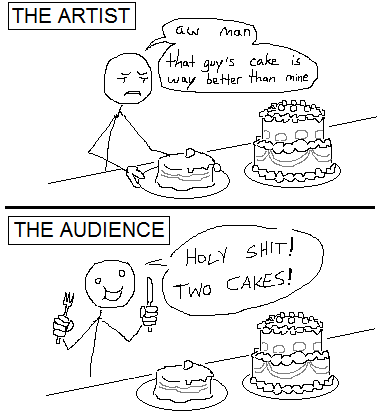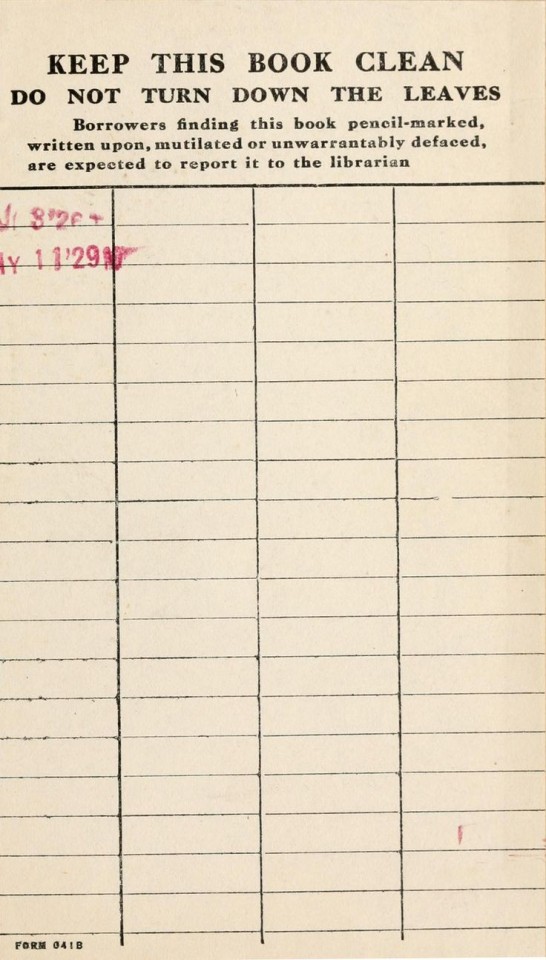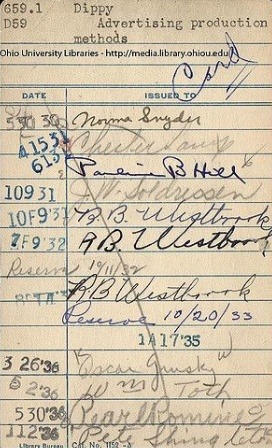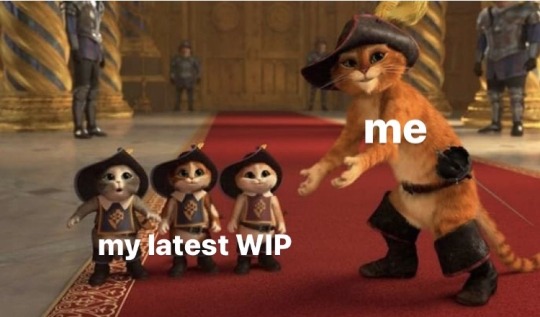Text
when you’re in the middle of writing and completely forget where you’re heading

1K notes
·
View notes
Photo

*Free Books With Asexual Characters
For more details about these books check out our master list
List As of 8/2/2018
New Adult/Adult Novels
Sere from the Green
Hello World
Good Angel
Heels Over Head
A Date with Angel
Dragonoak
The Pardoner’s Tale
Enemies Like These
Lady Ruth Constance Chapelstone and the Clockwork Suitor
Young Adult
The Asexual Equation
Ely Jesse and Robin’s Guide to Asexuality
Cold Ennaline
The Deadly Nightshade
The Last Chronomancer
The Beast of Callaire
A Word and a Bullet
Black Light Express
As Autumn Leaves
Teeth
Anthologies
Unburied Fables
Ace and Proud
The Heart of Aces
6K notes
·
View notes
Photo

People love writing emotionally reserved characters, but they rarely do them justice. Try to stay away from too many clichés or your tall, brooding stranger that’s an asshole to everyone that talks to them will be nothing but an asshole if you don’t pay attention. Here are some tips to include when writing an emotionally reserved character.
198 notes
·
View notes
Text
me: i want to be a published author one day!
also me when i remember i have to write to be a writer:

20K notes
·
View notes
Text
when you’re daydreaming and your mind generates a completely random scene that doesn’t have anything to do with your story, but the scene in question fits really well with both the plot and the characters in your wip

2K notes
·
View notes
Text

People have written a lot of touchy-feely pieces on this subject but I thought I’d get right to the heart of the matter
888K notes
·
View notes
Text
What about this one? Has this been done 😂

2K notes
·
View notes
Text
this is your sign to write that self-indulgent fic you’ve been daydreaming about, or to create that piece of art that’s super niche and might only appeal to you
504 notes
·
View notes
Text
so, this post is coming from a place of love and a place of exhaustion. i’ve been privy to conversations surrounding the accessibility of writeblr with nd and disabled friends of mine and well…
writeblr is not a very accessible place.
i don’t know if y’all have noticed that. there’s a very heavy assumption that writers are in perfect health, both physically and mentally, when writing advice posts. and it needs to stop. this is not meant to be an attack on anyone who has shared this advice before, it’s meant to be eye-opening. it’s intended to be benefit people writing advice posts / talking about writing by making sure they keep nd and disabled people in mind.
DISLCAIMER: i am one single person, and this is mostly my own opinion, so read the rest of this post with that in mind. not everything stated is going to fit every single person. i don’t want this to fall into discourse, i want this to make people aware of how some advice can feel nd & disabled people. let this spark a conversation that uplifts nd & disabled voices.
without further ado, here’s a list of things that simply do not work for everyone:
writing every day / sticking to a schedule
i don’t know how to say this except that some people just can’t. whether it’s because of health or mental blocks or anything else, this is extremely difficult for some, and nearly impossible for others. if you can do this, im happy for you, genuinely, but please stop spreading this as the “best way to finish your wip”.
just sit down and write
again, in the same vein as the last piece of advice, this can just be impossible. i’m speaking from experience when i say sometimes my brain literally doesn’t work when i try to do something, and pushing it to do that thing can make it even worse.
outlining is the only way
i’m simply tired of black-and-white advice. saying that things are the “only way” is tired, and exclusionary, and makes people who can’t do those things feel like they aren’t allowed to write. i know that this isn’t as big a thing on writeblr as it is on places like youtube, but i think it needs saying.
writers block isn’t real
alongside this comes the idea that being unable to write is because you’re lazy, or not trying hard enough, and that’s wrong. writer’s block is something quite literally blocking you from being able to write, be it burn-out, neurodivergence, or health issues. it’s not a personal failing, it’s just something that happens (and it can happen to anyone, regardless of their health), and we as a community need to be spreading that taking breaks is okay.
every interaction online is for self-promotion
this is simply exhausting. my existence online is not for the sole purpose of promoting myself. not to mention, this is mentally taxing, and can lead to some extremely nasty burn-out. people should be able to exist online, sharing their art, without it having to tie back to self-promotion.
these next couple aren’t really about advice but:
publishing as the only goal
i know plenty of writers on tumblr who simply don’t want to publish. the publishing industry itself is highly inaccessible (i mean, just see the current conversations on twitter surrounding literary agents dropping neurodivergent writers because they don’t want to “deal” with them!), and i don’t want to see everything writing-related also be publishing-related. writing is art, and art does not have to be commodified and sold.
lack of image descriptions / using fancy text
please stop this. this is something i see talked about a lot, but i still see it happening all the time. image descriptions help everyone but are explicitly necessary for people who use screen readers. using fancy / different fonts makes it both difficult for people not using screen readers and people who do (i saw a post today using a fancy gothic script font, and i could barely read it myself). and keep your image descriptions out of a readmore, too.
482 notes
·
View notes
Text










STOP ASIAN HATE
Like and reblog
125K notes
·
View notes
Text
Tonight (March 17 2021) in Atlanta, at least eight workers are dead after a series of targeted shootings in massage spas. The shooting is the latest in escalating Anti-Asian hate crimes, which have increased nearly 150% over the past year alone.
Below are a few links to organizations to consider supporting, all of whom are fighting for the rights of AAPI, as always feel free to add on any (credible) links or updates:
Gofundme for the AAPI Community Fund
Stop AAPI Hate
Asian Americans Advancing Justice
Red Canary Song
37K notes
·
View notes
Text
There is something so intriguing, so fascinating about library cards, the ones that are kept inside the books, with the list of people who issued it and the return dates. Like yes, show me who read you before me and let my mind imagine unrealistic scenarios for them.


18K notes
·
View notes
Text
High Payoff Scenes.
If that scene you meant to be emotional, jaw-dropping and climactic isn’t working right, try taking a step back.
All the usual aspects of a good scene also apply to the buildup toward a good scene. As well as including all these aspects into the scene itself, remember that at the point where your awe inspiring scene hits…
The reader should already feel deep, ‘positive’ emotions for the characters involved, whether that be love, intrigue, or an I love to hate them feeling.
The reader should already understand and have witnessed the characters struggling in some way with the goals they are working towards during that scene.
The reader should already have a clear picture of the character’s relationships and emotions, and understand which direction they are moving.
The reader should already be well-based in the plot and have a good understanding of every piece of information they need order to be fully immersed in the scene.
The reader should already have a clear picture of the current stakes and playing field, so they can decide what outcome to root for. (Or in some cases, they can feel the same desperation the pov character has as they realize there are no good outcomes.)
Most importantly, remember that there are no perfect first drafts, and barely any half-decent second, third, or fourth drafts either. If you need to rewrite and rewrite a few times over, that’s okay.
Just because the amazing scene in your head seems to fall short once it’s written, doesn’t mean all its amazingness isn’t still buried in there somewhere.
7K notes
·
View notes
Text
How To Write Grief by Diana Wallace Peach

Common Physical Reactions to Death
Tightness in the forehead, throat, or chest
Dry mouth
Breathlessness
Nausea and/or a hollow feeling in the stomach
Weakness, fatigue
Sleep disturbances, dreams, and nightmares
Appetite disturbances
Disbelief is often a first reaction upon hearing of a death, especially if the death is sudden. Disbelief manifests as an initial numbness, a surreal sense that this can’t be happening, that the world has stopped making sense.
Internal/External Coping: Your characters’ reactions will vary widely. Some will express themselves externally, others internally. This can be a source of misunderstanding – the less emotionally expressive characters accused of coldness or indifference, the more openly expressive characters accused of wallowing in self-pity.
Social Immersion/Withdrawal: Some characters will desire immersion within their social network to gain support or stem loneliness and fear. Other characters may avoid interactions, needing time to process and reflect in solitude. Many will fall somewhere in between, appearing fine until the brittle walls of control collapse at a word or gesture.
The Rollercoaster: Most people will dip in and out of grief, able to handle it in small doses before backing up and regaining emotional control. Your characters will function and grieve, function and grieve.
Reminders: Some characters may avoid reminders of the deceased, finding that places or objects trigger painful feelings. Others may have the opposite reaction—desiring to visit those places and carry keepsakes.
Active/Passive: Death generates a sense of helplessness. Some grieving characters may resort to intense activity (cooking, training, working, painting the house, or shopping). This is a coping mechanism that counters the loss of control. Others will feel lethargic, distracted and forgetful. They’ll have trouble focusing or wander in a fog without the will to complete the simplest tasks.
Spirituality and Religion: For some characters, death may challenge spiritual or religious beliefs and shake faith to its foundations. For others, spiritual or religious beliefs may be or become the lifeline that sees the character through.
Conflicted Relationships: These are relationships shaped by a tangle of positive and negative experiences, wishes, and emotions. Characters are grappling for balance and control, for respect, love, or approval. Death ends all chances for a satisfactory resolution. The feelings left behind are a stew of love, anger, regret, and guilt.
Recklessness: Though recklessness may appear as a death wish, it might actually be angry defiance, a wager that death can be beaten at its game. Characters may also put themselves at risk to make up for a failure to protect others or guilt at their own survival.
Anxiety, insecurity, and panic. Unlike recklessness, anxiety can be paralyzing. A shattered world can leave a character with a heightened sense of mortality, a fear of surviving on one’s own, or an aversion to taking risks.
Characters may feel relief after the death, particularly if the deceased suffered. Relief and a sense of liberation may also occur at the end of conflicted relationship, the battle finally over. Guilt frequently accompanies the sense of relief.
Guilt: Guilt is very common and often completely illogical. All the “I should have’s” and “if only’s” roll through the character’s brain, especially in cases of suicide.
Anger: Anger generally has four sources:
Justified anger at perpetrators and the failures of individuals and institutions. This is fertile ground for thoughts of revenge.
Lashing out at others in response to feelings of helplessness and loss of control.
Anger at one’s self for an inability to prevent the death.
Anger at the deceased for dying, for not fighting harder, not making better choices, or abandoning the survivors (like guilt, this anger isn’t always logical).
Unexpected Death: Death out of the natural sequence of life is generally more tragic than death after a long life. Sudden death is frequently harder to deal with than a loss that’s expected. Death by a purposeful or negligent hand is often more difficult than one by accident or illness.
Previous experience with death can prepare a character for new losses and soften the sharp edges. At the same time, if previous deaths weren’t fully processed, new losses can trigger unresolved emotions and complicate healing.
Delaying grief: Death and grief make characters feel vulnerable. In dangerous situations, it’s common for grief responses to be suppressed or delayed. Then once safe, the emotional blockade opens. If that safe haven for grief is a long time coming, consider that feelings may bottleneck, turn in on the character, or explode.
Children’s Grief – Don’t forget that babies, children, and teens grieve too!:
Babies experience a sense of absence in their lives. They also respond to the stress of the adults around them.
Little children and teens experience the SAME feelings as adults including guilt – believing that they somehow could have prevented the death.
Children also dip in and out of grief, cry and whine one minute, then play and laugh the next.
Children and teens tend to regress to younger behaviors.
Children will frequently delay their own grief until they see that the adults are handling it well and it’s safe to grieve.
In an attempt to fit in, teenagers will frequently hide their grief. Teens may not talk about their feelings with their parents, but will talk to another trusted adult.
4K notes
·
View notes
Text
How to Write an Antihero
An antihero is neither a hero not a villain, but a character who lacks the qualities necessary to be a hero. Because an antihero hinges on knowing what a hero is, you can check out my article on How to Write a Hero.
Flaws and Virtue
Most characters have flaws and virtues. However, the flaws of an antihero are more balanced compared to those of a hero. Of course, an antihero must not be so flawed as to stray into villainy. They are simply too flawed and not virtuous enough to be called a hero.
Good Intentions
The motives behind antiheros are what separates them from villains. They will likely want a noble outcome, such as saving the kingdom, but might go about it the wrong way. For example, if a character holds a princess hostage in hopes of negotiating with the king, the reasons and methods are what divide the categories. The point between an antihero and villain is what he wants from the king and how he treats the captured princess.
Sympathy
As I demonstrated, an antihero is contingent on how the audience understands their actions, motives, and values. A way to achieve this balance is by manipulating the audience’s sympathy. Read my article about writing sympathetic characters to learn more.
881 notes
·
View notes
Text
I've been doing lots of editing, so here's my...
TOP 10 MOST SATISFYING THINGS ABOUT EDITING YOUR NOVEL
10. Taking a passage that was already pretty good and then making it even better.
9. Looking at a passage, saying "yeah I don't need any of this" and slamming the delete key
8. Adding just the right amount of foreshadowing during that seemingly innocent scene 😈
7. Taking [that one line] from earlier in the book and putting it in the final chapter.
6. Spotting a plot-hole and fixing it!
5. Realizing that nobody will ever know that there's a word you can't, for the life of you, ever spell right when you're writing (mine is apartment, I always seem to put two p's in there don't ask me why)
4. Reading a passage and knowing that it is *just* right~
3. Fleshing out my character/location descriptions! It's so much easier once you actually know the characters and locales of your story.
2. Finding little gems in the writing that I didn't notice before and making them the spotlight of a chapter!
And, number one...
1. Knowing that no one will ever, ever, see the mess that this book was before! It's so satisfying to work at it, polishing and polishing, until it's practically unrecognizable from the first draft.
That right there? That's the best feeling. 😊🌻
2K notes
·
View notes
